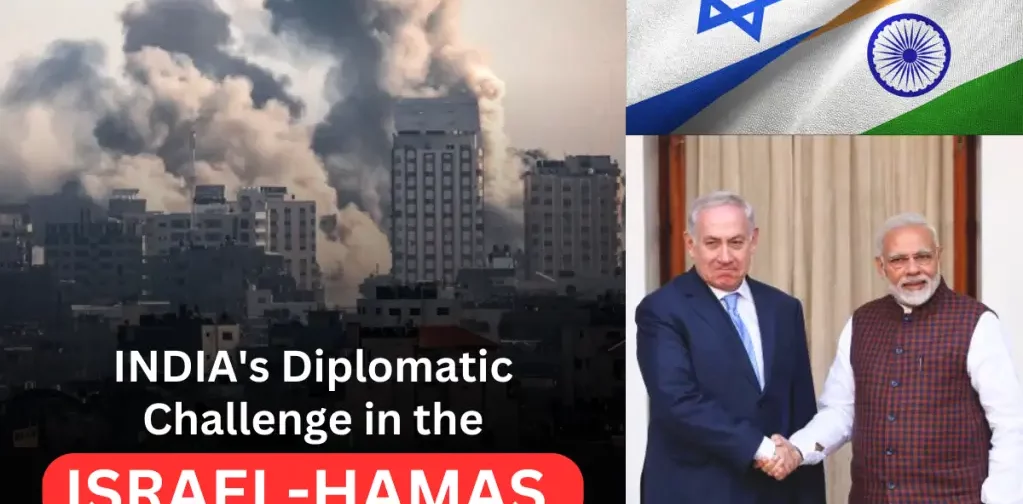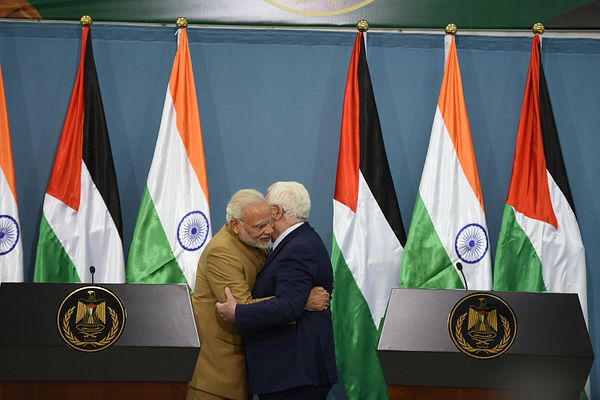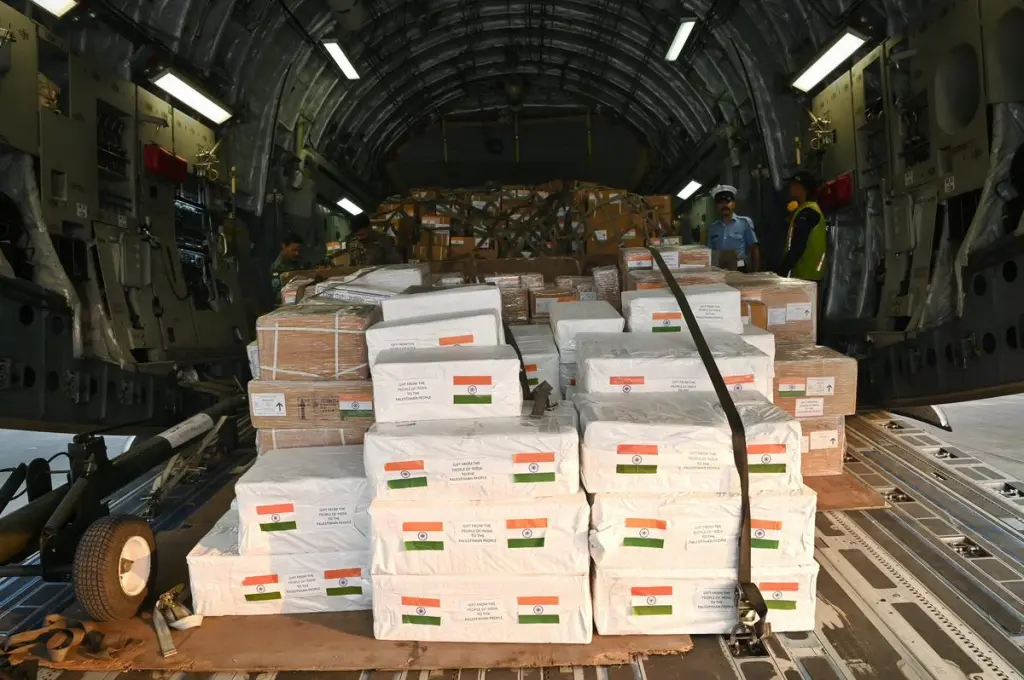
- Home
- About
- Knowledge Center
- Legislative Landscape
- Resources
- #TOGETHERFORBHARA
The Israel-Hamas conflict has deep historical roots, with each phase building on past tensions. It began in the late 1940s when British colonial rule ended in Palestine, and violence intensified between Jews and Arabs, culminating in the 1948 war between the newly created State of Israel and its Arab neighbors. This led to tens of thousands of Palestinians seeking refuge in Gaza, dramatically increasing its population.
In the 1950s and 1960s, Egypt governed Gaza, enabling Palestinians to work and study in Egypt. Armed Palestinian groups, many of them refugees, launched attacks on Israel, drawing reprisals. The United Nations established UNRWA to support Palestinian refugees in Gaza and neighboring regions. In 1967, Israel captured Gaza during the Six-Day War, leading to Palestinian resentment. In 1987, the first intifada erupted, and Hamas emerged as a rival to the secular Palestine Liberation Organization (PLO), advocating for Israel’s destruction.
The Oslo Accords in 1993 aimed to provide limited Palestinian autonomy in Gaza, with hopes of eventual statehood. However, disputes and violence hindered progress. The Second Intifada in 2000 marked a period of violence and Israeli restrictions. Israel’s evacuation of its Gaza settlements in 2005 brought both greater freedom of movement and economic challenges. In 2006, Hamas won elections and seized full control of Gaza, leading to international isolation.
Throughout these years, Gaza’s economy repeatedly suffered due to conflicts between Israel and Palestinian militant groups, with a particularly devastating episode occurring in 2014.
In 2023, a surprise attack by Hamas on Israel triggered significant violence, resulting in substantial destruction and casualties. The region’s complex history and unresolved issues have contributed to the ongoing Israel-Hamas conflict, underscoring the need for a peaceful resolution.
In the wake of a tragic event in which Hamas fighters launched an attack, claiming the lives of many Israeli citizens, Prime Minister Narendra Modi swiftly extended India’s support to Israel. While the historical contexts and scales of violence in these two regions differ, India has regrettably borne the brunt of terrorism on numerous occasions. Consequently, the pain felt in Israel, where innocent lives, from teenagers at a concert to children in a park, grandparents in their homes, and even babies in cribs, were ruthlessly taken, strikes a chord with the people of India.
In addition to these heart-breaking losses, Hamas also carried out other reprehensible acts, including the taking of numerous hostages. So, similar sentiments were echoed when Prime Minister Modi had a conversation with Israel’s Prime Minister, Benjamin Netanyahu, where they both denounced terrorism in all its manifestations.
India’s perspective on Hamas, which has received the terrorist organization designation from the United States, is notably clear. The Indian foreign ministry has affirmed that it considers the group’s assault on Israel as an act of terrorism.
During this crisis, India’s significant worry has revolved around the well-being of its citizens, particularly as Israel initiated retaliatory strikes in Gaza. Approximately 18,000 Indians are either working or studying in Israel, alongside around 85,000 Israelis with roots in India, hailing from regions such as Maharashtra, Manipur, Mizoram, Kerala, and West Bengal1. The Ministry of External Affairs (MEA) has taken proactive measures, including chartering flights, to ensure the safe return of these individuals to India. India has launched a mission called Operation Ajay to rescue the Indian citizens stuck in Israel. The person leading this mission is India’s envoy to Israel, Shri Sanjeev Kumar Singla. He is working tirelessly day and night to ensure the safety of all Indian nationals.
The historical connection between India and Israel is a story of evolving diplomatic and economic relations. In 1992, India established full diplomatic ties with Israel, marking the formal beginning of their relationship. Over time, India and Israel have developed increasingly close bilateral relations. They cooperate in various fields, such as trade, technology, defense, and counter-terrorism. India has sought Israel’s expertise in areas like agriculture and defense technology, which has led to a fruitful collaboration.

Prime Minister Narendra Modi’s visit to Israel in 2017 was a significant milestone, making him the first Indian Prime Minister to do so. This visit symbolized the deepening engagement between the two nations. Reciprocally, Israeli Prime Minister Benjamin Netanyahu visited India in 2018, further strengthening the ties.
Moreover, because of the rising antisemitic attacks worldwide due to the conflict, India is taking measures to protect its Jewish community. Around 6,000 Jews are living peacefully in India. To ensure their safety, India has increased security around Jewish centers, aiming to keep the community safe and secure.
However, India’s relationship with Israel is not devoid of its long-standing support for the Palestinian cause. India has historically expressed solidarity with the Palestinian people’s quest for statehood. In 2017, India voted against the United States and Israel’s move to declare Jerusalem as the Israeli capital. This vote underlines India’s commitment to its historical position on the Israel-Palestine conflict. Thus, despite building closer connections with Israel, India has remained consistent in its stance on the Palestinian issue. India provided developmental assistance to Palestine and extended support to Palestinian refugees through an annual contribution of $5 million to the UN.
While the world seems to be taking sides – some supporting Israel, some supporting Palestine, the conflict has put India in a diplomatic tight spot. Financial experts are also worried about how it could impact the Indian economy. If the conflict drags on, it could lead to higher oil prices, which would hurt India because it’s the world’s third-largest importer of crude oil.
At the start of the conflict, Prime Minister Narendra Modi expressed support for Israel by condemning the “terrorist attacks.” However, the Ministry of External Affairs later called for direct negotiations between Israel and Palestine to seek a peaceful solution. India has consistently supported negotiations for an independent Palestinian state living peacefully alongside Israel. Thus, India’s approach to this conflict reflects its historical ties with Palestine, evolving relations with Israel, and its ability to balance relationships.
In a recent development, India’s Deputy Permanent Representative to the United Nations, Ambassador R. Ravindra, announced India’s compassionate gesture. India has dispatched 38 tons of humanitarian aid, including crucial medical supplies and equipment, to the war-torn region of Gaza in Palestine. The aid is aimed at providing relief to the civilian population suffering from the devastating conflict between Israel and Hamas.

Ambassador Ravindra emphasized the importance of fostering a peaceful environment. He urged both parties involved in the conflict to take steps towards de-escalation and putting an end to violence. By doing so, it is hoped that the conditions for direct negotiations can be reestablished, bringing a glimmer of hope for lasting peace in the region.
India’s humanitarian assistance is not only an act of solidarity but also a call for peace and stability in a region that has seen its fair share of turmoil. This gesture reaffirms India’s commitment to humanitarian causes on the global stage.
